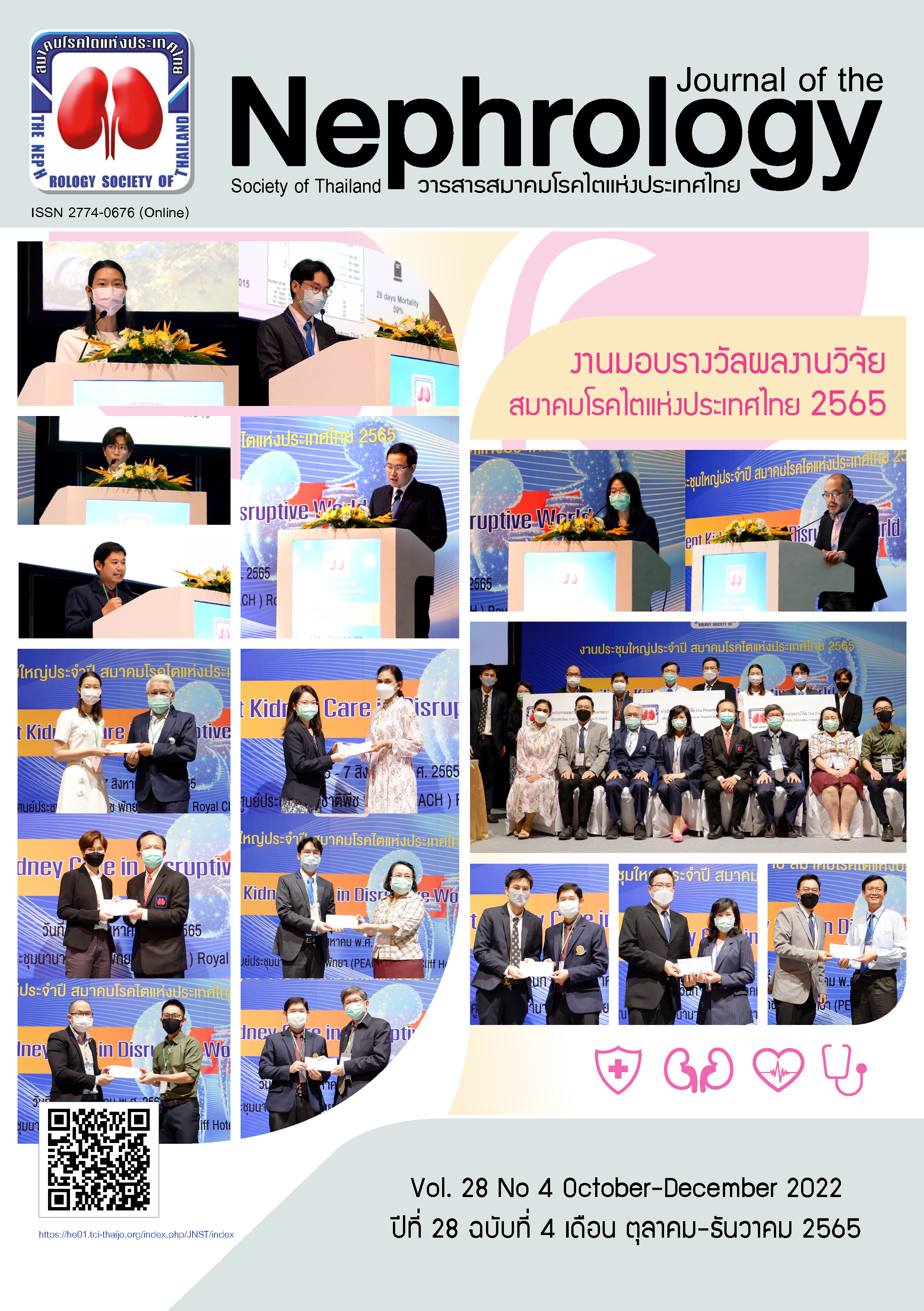The Pragmatic Machine Learning model to Predict Acute Kidney Replacement Therapy in Critically ill Patients
Main Article Content
Abstract
Background: Critically ill patients were associated with severe acute kidney injury (AKI) and acute kidney replacement therapy (AKRT). A better prediction of AKRT could result in better triage, rapid management, and the best outcomes. Hence, some studies try to predict AKRT by clinical risk scores or biomarkers. In contrast, we leverage information in routine clinical practice corporate with machine learning algorithms to predict AKRT.
Method: We used two datasets - the first dataset (dev-dataset) for developing machine learning models from the SEA-AKI study (n = 4,668) and the second (n = 357) for the external validation of the models. We included patients who survived more than seven days or had AKRT within seven days. We split the dev-dataset into the discovery and validation datasets by 75:25. Features were selected by features usually present in routine practice. We used decision trees, random forests, extreme gradient boosting trees (XGBoost), and multilayer perceptron (MLP) algorithms as candidate models. The outcome was AKRT within seven days.
Results: The 12 features were divided into three domains: chronic diseases, primary disease severity, and kidney injury severity. The performance of the models is shown in Table 1. The best model was the XGBoost algorithm, and the MLP algorithm was the runner-up with the high performance of both models.
Conclusion: Machine learning models to predict AKRT are well accurate. However, we need further prospective studies to validate and implement the routine clinical practice.
Web application is available at: https://www.vbam4h.com/pml-akrt
Article Details

This work is licensed under a Creative Commons Attribution-NonCommercial-NoDerivatives 4.0 International License.
This article is published under CC BY-NC-ND 4.0 license, which allows for non-commercial reuse of the published paper as long as the published paper is fully attributed. Anyone can share (copy and redistribute) the material in any medium or format without having to ask permission from the author or the Nephrology Society of Thailand.
References
N/A


